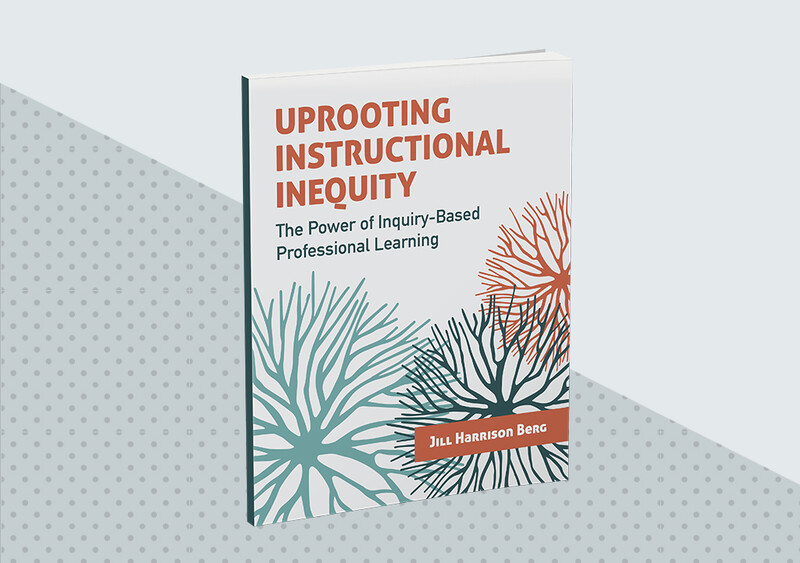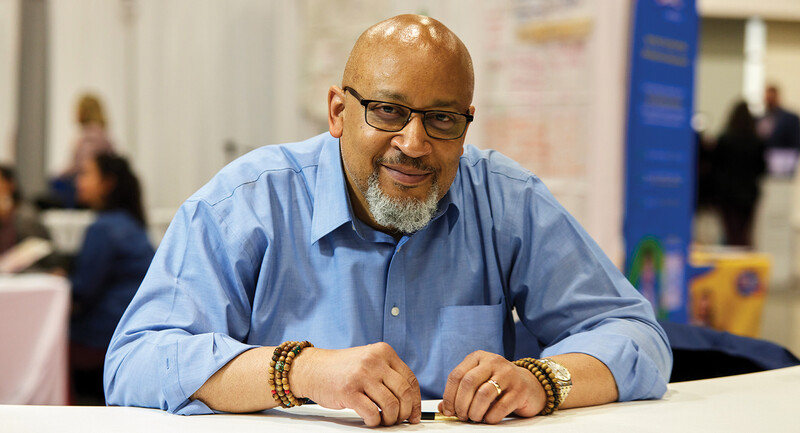We all have cultural ways of being that we've picked up inadvertently—regardless of the skin we're in—that create or perpetuate harm to others. From a young age, society teaches us the subtle message that some people matter more than others, that there's a social hierarchy to follow that ranks people by identity markers such as race, class, and gender—and that we shouldn't talk about it. This "order" of things influences our actions in ways we don't intend, but that have a harmful impact.
Left unchecked, our biases can make their way into our classrooms in subtle and not so subtle ways: teaching ideas and perspectives that primarily originate from just one of our seven continents, praising students who come to school with new school supplies, paying more attention to boys than students of other genders, or encouraging participation of lighter-skinned students while chastising or ignoring darker-skinned students. Actions such as these can cause students to question themselves: Am I good or bad? Who is normal and who is not? Do I matter?
Sowing seeds of self-doubt in students is dangerous. Yet it's nearly impossible to avoid doing this if we don't know that we're doing it. And it's hard to know if we're doing it because most people won't tell us.
The Shortfall of Self-Reflection
Biases are "blind spots" caused by the shortcuts our brains take in their attempt to help us be more efficient and effective. To protect us from becoming overwhelmed, our brains selectively economize on what we remember. When we're short on time or information, our brains make inferences that enable quicker decisions (Benson & Manoogian, 2021). But are these self-protective mechanisms serving us and those around us well, or are our brains economizing to our detriment? To truly know the answer, we need feedback.
Self-reflection only goes so far because, well, we're biased. Our brains are trained to skip right over what we haven't taught them to look for, what doesn't confirm what we already know, and what we don't want to admit is there. Sure, self-reflection can be aided by feedback in the form of evidence, such as observations of another's emotional response to our actions, comments from bystanders, or even hard data like a score on Harvard's Implicit Association Test (Project Implicit, 2011). However, it's remarkably easy to find alternative explanations for outcomes we don't like and to interpret any discrepancies between fact and rationalization in our favor. Self-reflection is necessary but insufficient for identifying and mediating the harm our implicit biases might cause.
For this reason, we need to be able to look to others as allies—to solicit feedback from family members, friends, colleagues, and even students. Unfortunately, it's rare that these individuals will be instinctively inclined to share their honest observations with us about ways our bias may be causing harm. In the internal calculus of the pros and cons of providing feedback to others about their biases, most of us would cautiously lean toward keeping our mouths shut.
Plus, nobody wants to give us feedback if they feel we aren't prepared to receive it well. We might get upset and take it out on them, we might take it personally and hold it against them, or we might push back and make them feel like they were wrong. The potential disadvantages and risks of raw honesty outweigh the advantages of it every time. If we're going to get the feedback we most need—the feedback that can help us to take responsibility for our impact on students—we need to learn how to receive it skillfully.
Receiving Feedback Skillfully
In their 2015 book, Thanks for the Feedback, Stone and Heen point out that accepting feedback well is a learned skill. Receiving feedback often triggers an emotional response that can make us want to fight or flee. But we can—and must—choose to channel this energy in service of our ultimate goal: to recognize and mitigate the harm our biases may cause. We must embrace feedback as the coaching we need to reach that goal. If we can do this proactively and visibly, we'll build others' confidence in our commitment to improvement and we'll get the feedback we most need.
Self-reflection only goes so far because, well, we're biased.
Whether you turn to your colleagues and ask for feedback directly or find yourself on the receiving end of unsolicited input, these tips adapted from Stone and Heen will help others to trust that you value their feedback.
Ask for specific kinds of feedback: Would you rather hear low-inference descriptive observations, or do you want to hear colleagues' interpretation of those observations? Are you concerned about how you come across in a particular context? It's OK to ask for what will be most helpful to you: "I'm working on equity of voice in our classroom discussions. Can you help me by being another pair of eyes?"
Seek feedback from unlikely sources: You might be tempted to approach the "usual suspects"—maybe long-standing coworkers or colleagues who match your demographics. Instead, try inviting one-on-one conversations with students, new colleagues, or others outside your social sphere. You might ask, "Would you be willing to join me at lunchtime? I'd like your perspective on my facilitation of team meetings."
Be transparent when you're feeling defensive: You may hear something you weren't expecting. After all, the purpose of feedback is to get a new point of view! If you're feeling emotional, acknowledge it. Clarify aloud that it's not the messenger but the message that has you heated: "I don't want you to be put off by my emotional reaction. It's just my passion for this issue, and my desire to do better."
Get curious, not furious: Channel powerful feelings into clarifying questions that can help you picture and depersonalize what the other person has said. "Can you tell me more about what you noticed?"
Be imaginative: Can't accept feedback from this person? Imagine someone else said it. Can't believe this feedback is true? If it were true, what would you do? Imagine conditions under which feedback that sounds off-base might be on-target. Try telling yourself, "That's the last thing I want to happen! How can I keep anything like that from happening?"
Show appreciation: Others have taken a risk to share their perspective with you. Respond with gratitude that's specific. How has the risk they've taken been enlightening and useful to you? You might say, "Thank you for the feedback. When I know better, I can do better!"
When we lean in to inviting and receiving feedback on sensitive issues, we not only grow personally and professionally, but we also improve relational trust with our faculty and colleagues.
Those of us who are serious about assuming responsibility for our impact cannot afford to have others withholding the very feedback we need. To break the silence, we must give them confidence that we value their feedback. We can do this by receiving it skillfully.
Uprooting Instructional Inequity
In Jill Harrison Berg's new book, learn how to use collaborative inquiry as a means for identifying, interrogating, and addressing instructional inequity.










